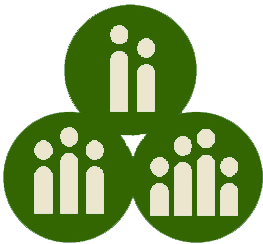- Education Topics
- Achievement Gap
- Alternative Education
- American Education Awards
- Assessment & Evaluation
- Education during COVID-19
- Education Economics
- Education Environment
- Education in the United States during COVID-19
- Education Issues
- Education Policy
- Education Psychology
- Education Scandals and Controversies
- Education Reform
- Education Theory
- Education Worldwide
- Educational Leadership
- Educational Philosophy
- Educational Research
- Educational Technology
- Federal Education Legislation
- Higher Education Worldwide
- Homeless Education
- Homeschooling in the United States
- Migrant Education
- Neglected/Deliquent Students
- Pedagogy
- Sociology of Education
- Special Needs
- National Directories
- After School Programs
- Alternative Schools
- The Arts
- At-Risk Students
- Camps
- Camp Services
- Colleges & Universities
- Counties
- Driving Schools
- Educational Businesses
- Financial Aid
- Higher Education
- International Programs
- Jewish Community Centers
- K-12 Schools
- Language Studies
- Libraries
- Organizations
- Preschools
- Professional Development
- Prom Services
- School Assemblies
- School Districts
- School Field Trips
- School Health
- School Supplies
- School Travel
- School Vendors
- Schools Worldwide
- Special Education
- Special Needs
- Study Abroad
- Teaching Abroad
- Volunteer Programs
- Youth Sports
- For Schools
- Academic Standards
- Assembly Programs
- Blue Ribbon Schools Program
- Educational Accreditation
- Educational Television Channels
- Education in the United States
- History of Education in the United States
- Reading Education in the U.S.
- School Grades
- School Meal Programs
- School Types
- School Uniforms
- Special Education in the United States
- Systems of Formal Education
- U.S. Education Legislation
- For Teachers
- Academic Dishonesty
- Childcare State Licensing Requirements
- Classroom Management
- Education Subjects
- Educational Practices
- Interdisciplinary Teaching
- Job and Interview Tips
- Lesson Plans | Grades
- Professional Development
- State Curriculum Standards
- Substitute Teaching
- Teacher Salary
- Teacher Training Programs
- Teaching Methods
- Training and Certification
- For Students
- Academic Competitions
- Admissions Testing
- At-Risk Students
- Career Planning
- College Admissions
- Drivers License
- Educational Programs
- Educational Television
- High School Dropouts
- Higher Education
- School Health
- Senior Proms
- Sex Education
- Standardized Testing
- Student Financial Aid
- Student Television Stations
- Summer Learning Loss
Keys for Networking

Basic Information
Address: 233 SW 33rd Street
Topeka, KS
66611
Phone Number: 800-499-8732
Fax Number: 785-323-7280
Action Shots
* There are currently no photos associated with this listing.
Additional Information
Executive Director: Jane Adams
Service Description: Building peer-to-peer networks that connect parents and youth to local resources and service providers of mental health, substance abuse, education, foster care, and juvenile justice.
Mission Statement:
To provide parents and youth access to helpful health/mental health services that generate school, home, and work opportunities.
Membership Fee: none
Eligibility Requirements: none
Area Served: Kansas
Hours of Operation/Schedule: Monday–Friday 9 a.m. – 5 p.m. CST
Services Offered:
Individual assistance, connections to and explanations of mental health services, parent support and training, education support for youth 15+ in foster care, and public health insurance eligibility determination and application assistance.
Individual assistance, connections to and explanations of mental health services, parent support and training, education support for youth 15+ in foster care, and public health insurance eligibility determination and application assistance.
History:
Keys was formed by a small group of concerned parents in 1987. We have been able to grow and continue our work for so long because of the continuing support of individuals, families, and organizations who share our commitment to advocating for children with educational, emotional, and behavioral problems and their families.
Slogan: Parents make good choices when they have good information and access to resources.

